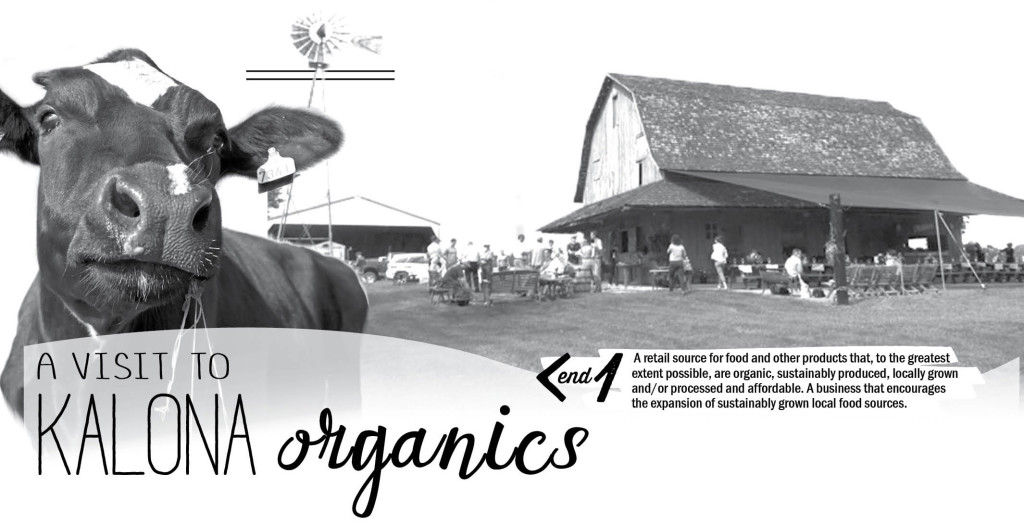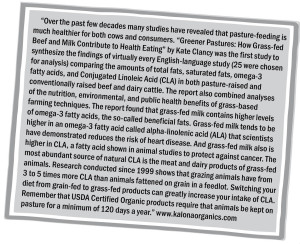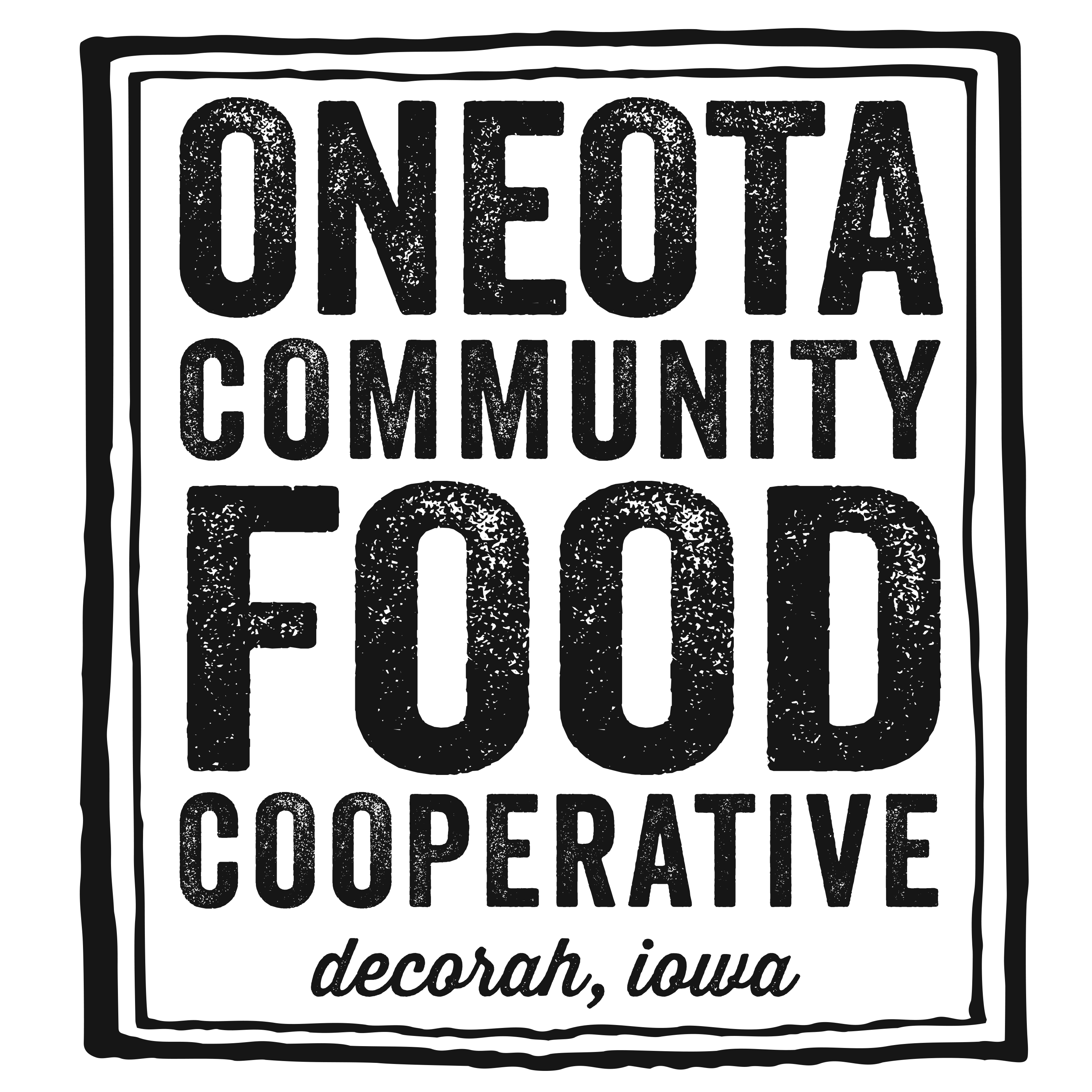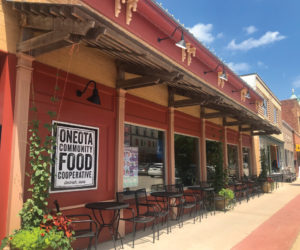 By: Beth Hoven Rotto, Cheese & Dairy Buyer
By: Beth Hoven Rotto, Cheese & Dairy Buyer
On a lovely fall day, I visited Kalona Organics in rural Washington County, Iowa to be part of their tenth anniversary celebration. Kalona Organics produce high quality and minimally processed dairy products that we have started carrying at Oneota Community Co-op. That morning a small group of their customers and distributors met at their Frytown Facility, which is a distribution warehouse on a rural, gravel road where product is stored until it is assembled for delivery. We were given the VIP tour of the warehouse, and then drove several miles to visit the Farmer’s All-Natural Creamery, where Kalona Supernatural brand milk, butter and buttermilk are produced. These businesses are part of the Open Gates Group, founded and owned by Bill Evans, who was one of our hosts. Back in 2002, Bill was hired to help finance a creamery. Amish farmers in the area were seeking an organic milk processor but because Amish do not work on Sunday, they were not able to be on the same schedule as other dairy farmers for their milk pick-ups. (Pick-up is generally every other day, making pick-up days fall on two Sundays a month.) Kalona Organics was set up to work without pickup on Sundays and the company takes pride in the fact that most of their supply comes from Amish and Mennonite family farms, where almost all the work is done by hand. Kalona Organics was envisioned as a way to help small farmers bring organic products to a larger market.
We met Eldon Miller, one of the farmers who is a leader in both organic farming and the Amish community. He told us about the special area around Kalona where some of the farms are located have never seen herbicides or pesticides and have been in the same family for 150 years. There are around 4,000 acres of certified organic crop and grazing land there, making it one of the densest areas of organic farms in the country. The rolling hills and winding country roads are dotted with red barns and green pastures, not so different than parts of Winneshiek County. The farms average 90 acres and the typical herd is 35 cows, with several different breeds including Holstein, Jersey, Brown Swiss and Red Devon. As Kalona Supernatural products are expanding into major markets across the nation, it is really astonishing to me to know that so few people are making such a large impact and by using methods that are in stark contrast to that of conventional farming.
On our way to a lunch, served outdoors at a quaint and beautiful farm setting, we drove past a dairy facility that was recently purchased by Kalona Organics to allow for expanded operations. When this business closed in September 2014, conventional dairy farmers no longer had access to a place to sell their milk within 100 miles. Kalona Organics has been fielding numerous questions from farmers interested in converting to organic production. It looks like Iowa will be getting more and more organic farmers, even though it takes several years to obtain organic certification. The Des Moines Register reported on September 17, 2015, in fact, that Iowa added 94 organic farms from 2008 to 2014, making Iowa the tenth largest producer of organics in the United States.
To sell milk to Kalona Organics, farms need to be USDA Certified Organic, which means that no toxic and persistent pesticides, insecticides, herbicides or fungicides, no synthetic growth hormones or antibiotics, no genetically modified organisms (GMOs), no irradiation or sewage sludge, and no synthetic fertilizers can be used. Organic certification also means that affirmative practices are used to promote a healthy natural environment, such as using biological and mechanical processes to control pests, rotating crops to maintain nutrient rich soil, minimizing soil erosion and avoiding mono-crop farming to maintain biodiversity. It means accommodating natural animal behavior by providing a minimum of 120 days on pasture, and providing shade, shelter and dry bedding. Animals are fed organic, vegetarian feeds and their waste is used as fertilizer. All products carry the USDA Certified Organic seal and are inspected annually by an accredited third party certifying agency to ensure compliance with these rigorous standards. Eldon Miller told us that many of the farms exceeded the standards.
Another requirement is that each farm can only keep a certain number of animals based on the size of their acreage. This includes the young cows that are not being milked. Since cows are not bred until they are around 2 years of age they, in a way, “take up space” limiting the potential for some of the small farmers. We met a grass farmer who is passionate about his pasture ground and is able to house his neighbors non-milking cows at his farm, allowing more milkers to be kept on the dairy farms. The young cows are given good care, moved to fresh grass daily, and the quality of pasture is carefully monitored. As we passed the barn, classical music was being played for the cows, which we were told helps keep them relaxed.
Looking back to 2004, Kalona Organics was up and running with milk from just one farm and twelve employees. By 2014, there were 60 farms and 32 employees, and the business is continuing to grow. In addition to the facilities near Kalona, cottage cheese, sour cream, and yogurts are made at the Westby Cooperative Creamery in Westby, Wisconsin for Kalona Organics.
Kalona Organics mission is to promote minimally processed dairy products. We were told that they are the only company in the United States that makes a cultured buttermilk from the byproduct of butter making. That was surprising, but appears to be true. Other companies just use regular milk. Kalona Supernatural milk is not homogenized, so the cream rises to the top, as it does in all their products. At Oneota Co-op we don’t currently have room to carry Kalona Supernatural milk, but we do carry many other Kalona Supernatural products, including yogurt, butter, buttermilk, and cottage cheese. Give them a try and feel good about the company you are supporting!



